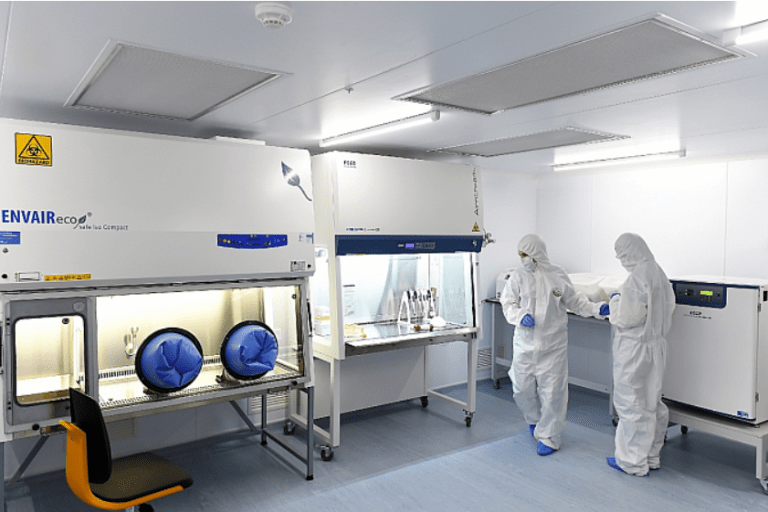MEDICAL PRODUCTS
Genetic analyses
SERVICE: Doctor-geneticist’s consultations, genetic diagnostics and DNA tests.

DESCRIPTION: Latvia’s state-of-the-art laboratories can perform a wide range of in-depth genetic examinations (including for infertile couples). The range of analyses includes medical tests, as well as tests to determine biological kinship. Available services include karyotype determination (genetic blood testing), genetic tests for examination of complex female/male infertility and preparation of a genetic pass for a new born child. Molecular-genetic examination can diagnose various factors including thrombophilia, PAI, non-invasive foetal rhesus factor in pregnant women, fragile X chromosome testing, Y chromosome testing (AZF factor), HLA typing, KIR typing and genetic examination of material from an interrupted pregnancy. Non-invasive NIPT “Panorama” prenatal screening of the foetus is available, which can also be performed in the event of a twin pregnancy and artificial insemination. Thanks to the latest scientific innovations, it is possible to conduct pre-implant genetic testing of the embryo at chromosome and gene level (PGT-A and PGT-M). This diagnosis can be performed with the goal of assuring the prospective parents and the doctor that the embryo does not have any chromosome anomalies, which in many cases can be the reason for infertility or an interrupted pregnancy. For example, embryo testing is conducted on the following genetic pathologies:
- Huntington’s Chorea – HTT gene mutations;
- Thoracic aortic dissection and aneurysm – ACTA2 gene mutations;
- Ichthyosis – ALOX12B gene mutations;
- Neuronal ceroid lipofuscinosis – TPP1 gene mutations;
- GM1-Gangliosidosis – GLB1 gene mutations;
- Myotubular myopathy – MTM1 gene mutations;
- Duchenne and Becker muscular dystrophies – DMD gene mutations
The majority of genetic tests are directly related to gynaecology and pregnancy, but diagnostics for testing gastroenterological, hematologic and oncological diseases are also available.
INDICATIONS: Couples in situations in which there have been cases in the family or relatives’ families of children being born with mental and/or physical retardation, congenital diseases and still born infants. Parents diagnosed with genetic diseases or chromosomal anomalies, cases involving one or more spontaneous abortions or structural foetal anomalies discovered during the course of pregnancy. In cases of late pregnancy (involving a woman of over 35 years or a man of over 45 years). Diagnostics are recommended for people who come from a family in which a blood relative has been diagnosed with a genome variation.
RESULT: The possibility to diagnose the causes of patients’ infertility with the goal of preparing a maximally effective and precise treatment plan. A precise diagnosis will facilitate the onset of the hoped for pregnancy and the birth of a health child. Likewise, by providing a timely diagnosis of risks likely during the course of pregnancy, it will be possible to find the most precise course of treatment for the relevant situation.
SERVICE OFFERED BY:
IVF RIGA
Dace Serģe
DACE.SERGE@IVFRIGA.EU
HTTP://WWW.IVFRIGA.LV/
- Choose a service
- Fill out the form
- Receive an individual response